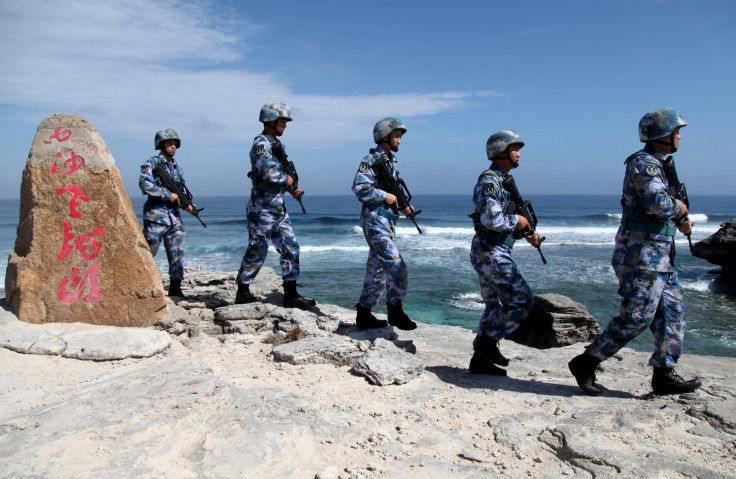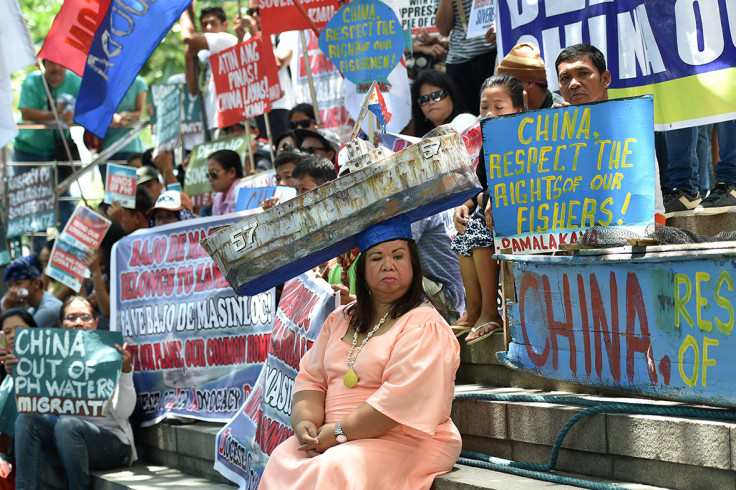South China Sea: State media warns of 'tit-for-tat' response if US or Japan use military pressure
Newspaper says it does not think 'provocateurs' are bold enough to take forceful actions.
The Chinese people will "firmly support" their government if it launches a "tit-for-tat" response, should the US and Japan use The Hague's decision that China has no legal right to the South China Sea to pressure Beijing, an influential state-run newspaper has said.
In its editorial published on 12 July, Global Times said: "We trust Chinese law enforcement and military forces have been well-prepared. We don't believe the provocateurs are emboldened enough to take forceful actions other than making some statements."
It continued: "Chinese society can withstand all the waves, including geopolitical challenges, to function as usual. We have kept a firm hold on the reclaimed islands and reefs in the Nansha Islands. Compared to long-term significance of these strategic pivots, the arbitration [decision] is merely a bubble."
The Nansha Islands as China calls them, are also known as Spratly Islands and comprises a group of 14 islands, islets and cays, in the South China Sea.
The newspaper denounced the verdict by the the Permanent Court of Arbitration in The Hague as "more radical and shameless" than expected.

It said: "All Chinese people are outraged by this illegal verdict and the world's peace-loving public is astonished by the biased decision that may escalate regional tensions."
In the landmark ruling on Tuesday 12 July, The Hague tribunal said that there was no legal basis for China to claim historic rights to the South China Sea. It also said China had "violated the Philippines' sovereign rights".

The Tribunal also commented on the historical rights to the waters, the lawfulness of Chinese actions, the harm caused to marine life and the aggravation of the dispute. It said that China's building of artificial islands had caused "severe harm to the coral reef environment" violating their obligation to preserve threatened and endangered species.
Global Times deemed the ruling as "ridiculous" saying that if it were to be followed, China "would be left with only a few isolated spots in the Nansha Islands without entitlement" to any exclusive economic zone and "could even be deprived of sovereignty of the waters surrounding the islands and islets".
It warned that under the ruling, China would not be able to continue with its island construction and that the existing facilities may be dismantled by Vietnam and the Philippines, if they could. "With the related resources being owned by Manila and Hanoi in the future, China would have to withdraw its business and other activities from the area."
The newspaper said the verdict has "brazenly violated China's territorial sovereignty and maritime rights." It maintained that the United Nations Convention on the Law of the Sea has no jurisdiction over territorial disputes, a principle that has been established since the convention was signed. Both the Philippines and China are signatories to the convention.
It also accused the tribunal of overstepping and abusing its authority, saying that it was a brutal violation of UNCLOS and the entire international law system. The verdict "is nothing but a piece of paper," the newspaper said.
China had refused to participate in the arbitration proceedings which resulted in four of the five arbitrators being appointed by Japanese judge Shunji Yanai. China had launched a tirade against Yanai and questioned the neutrality of the judges in the case.
China's official reaction
Chinese President Xi Jinping, in a statement issued on 12 July, said: "China's territorial sovereignty and maritime interests in the South China Sea, under any circumstances, will not be affected by the award. Meanwhile, Chinese Foreign Minister, Wang Yi, described the arbitration verdict as "a political farce made under the pretext of law."
Yang Yujun, the spokesperson for the Ministry of National Defence, said that the Chinese military will "resolutely protect its national sovereignty, security and maritime rights and interests, safeguard regional peace and stability and cope with all kinds of threats and challenges.
© Copyright IBTimes 2025. All rights reserved.






















